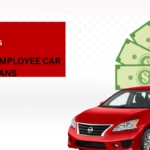In today’s dynamic job market, contract employee car loans have become an essential resource for millions of Canadians navigating non-traditional employment. With the gig economy booming—Statistics Canada reports over 2.5 million self-employed or temporary workers as of 2024—these specialized financing options bridge the gap for those without steady pay stubs, enabling access to reliable transportation crucial for commuting, client meetings, or delivery services.
Whether you’re a freelancer juggling multiple gigs or a seasonal contractor, securing a vehicle can enhance mobility and income potential, but it requires understanding unique lender criteria like variable income verification. This guide draws on insights from authoritative sources, including government resources on employment status and major bank financing programs, to demystify the process. For personalized assistance tailored to your situation, consider exploring options at Quick Approvals, a trusted platform for streamlined applications. contract employee car loans
Understanding Contract Employee Car Loans in Canada

At its core, a contract employee car loans is a secured auto financing product designed for individuals whose employment lacks the permanence of full-time salaried roles. Unlike traditional loans that rely heavily on W-2 equivalents, these loans emphasize alternative income proofs such as tax assessments and bank statements to assess affordability.
In Canada, where the Canada Revenue Agency (CRA) distinguishes between employees and self-employed individuals based on control, tools, and profit risk—detailed in their official guidelines—these loans cater to the latter group, often overlapping with independent contractors. contract employee car loans
The rise of platform-based work, like Uber driving or Upwork freelancing, has amplified demand. According to a 2024 Intuit report, gig workers contribute $100 billion annually to the economy, yet face higher rejection rates from standard lenders due to income volatility. Lenders mitigate this by capping loan-to-value ratios at 80-90% and requiring detailed financial histories. For instance, a Toronto-based graphic designer earning $60,000 yearly from short-term contracts might qualify for a $25,000 loan if their debt-to-income ratio stays below 40%, a benchmark echoed across major institutions. contract employee car loans
Key benefits include flexible terms up to 84 months and competitive rates starting at 5.99% for strong credit profiles, though averages hover at 7-9% for variable earners. Challenges? Stricter documentation and potentially higher rates for those with scores under 650. By preparing proactively, contract workers can turn potential hurdles into smooth approvals, fostering financial independence.
To illustrate eligibility nuances, consider this comparison of common borrower profiles: contract employee car loans
| Borrower Type | Typical Income Proof | Average Approval Rate | Sample Loan Amount |
|---|---|---|---|
| Full-Time Employee | Pay stubs (2-3 months) | 95% | $30,000 |
| Contract Worker | Tax returns + bank statements | 75-85% | $20,000-$25,000 |
| Gig Economy Driver | Platform earnings reports | 70% | $15,000-$22,000 |
This table highlights how contract employee car loans adapt to diverse realities, with data aggregated from lender trends reported by Finder Canada and Loans Canada.
How to Get Car Loan as Contract Worker: Step-by-Step Process
Securing a how to get car loan as contract worker involves a structured approach that prioritizes documentation over employment stability. Start by evaluating your financial health: Calculate your monthly income average from the past 12-24 months, subtract fixed expenses, and ensure at least 35% remains for debt servicing. Tools like RBC’s affordability calculators can simulate scenarios, revealing if a $400 monthly payment fits your budget.
Next, shop lenders. Traditional banks like TD and Scotiabank offer newcomer and variable-income programs, while credit unions provide member perks. Alternative providers, drawing from competitor insights like Carnation Canada’s streamlined approvals, often approve faster for scores above 600. Pre-approval locks rates for 30-90 days, shielding against market fluctuations—vital as Bank of Canada rates dipped to 4.25% in late 2024. How to Get Car Loan as Contract Worker
Once pre-approved, select your vehicle. Opt for used models under $25,000 to minimize borrowing; a 2019 Honda Civic, for example, averages $18,000 and qualifies easily. At the dealership, finalize with your lender’s terms. Post-purchase, maintain payments via auto-debit to build credit—on-time history can boost scores by 30-50 points annually. How to Get Car Loan as Contract Worker
- Gather essentials early: Avoid delays by compiling tax forms (T1 Generals) and 6-12 months of statements showing consistent deposits.
- Boost approval odds: A 10-20% down payment reduces risk; save via high-yield accounts yielding 4%+.
- Monitor rates: Fixed vs. variable—fixed at 6.5% suits predictability, variable at prime +1% for potential savings if rates fall.
- Seek co-signers wisely: A family member’s stable income can lower rates by 1-2%, but ensure shared responsibility.
- Review contracts: Watch for add-ons like extended warranties; negotiate or decline to keep costs under 5% of loan value.
How to Get Car Loan as Contract Worker, This process, refined over years of market evolution, empowers contract workers to drive forward without undue stress.
Exploring the Best Car Financing for Temporary Workers
For best car financing for temporary workers, the focus shifts to lenders accommodating short-term contracts, often 6-12 months. Seasonal roles in construction or tourism exemplify this, where off-peak earnings challenge standard underwriting. Top options include bank-backed programs: Scotiabank’s Auto Finance, praised in J.D. Power surveys for dealer satisfaction, offers terms up to 72 months with rates from 5.49% for qualified applicants.
Credit unions like Vancity provide localized support, waiving fees for members and using community ties for holistic reviews. Online platforms, inspired by Finder’s aggregator model, compare 20+ lenders in minutes, surfacing deals like 0% intro financing for certified pre-owned vehicles. For temporary workers, hybrid models blend personal loans with auto-secured features, capping at $50,000. Best Car Financing for Temporary Workers
Interest accrues differently: Simple interest loans charge only on principal, saving $500+ over 60 months versus pre-computed alternatives. Refinancing mid-term, possible after 6 months, can shave 0.5-1% off rates if credit improves. Real-world example: A Vancouver seasonal guide financed a $22,000 SUV at 6.2%, paying $380 monthly—affordable during peaks, buffered by savings in lows.
Pros and cons at a glance: Best Car Financing for Temporary Workers
- Pros: Flexible proofs (e.g., employment letters confirming extensions); lower barriers for scores 580+; incentives like cashback up to $1,000.
- Cons: Shorter terms (48-60 months) inflate payments; higher origination fees (1-2%) for non-prime profiles.
- Tips for optimization: Bundle with insurance for discounts; use apps like Mint for payment tracking.
Ultimately, the best car financing for temporary workers aligns with your contract cycle, ensuring payments sync with earnings peaks.
Used Car Loans for Self Employed Canada: Budget-Friendly Choices

Used car loans for self employed Canada dominate for cost-conscious borrowers, with the used market surging 15% in 2024 per AutoCanada reports. Self-employed individuals, from IT consultants to plumbers, favor these for depreciation avoidance—new cars lose 20% value in year one. Loans range $10,000-$40,000, with terms 36-72 months at 6-8% APR.
Lenders scrutinize via Notice of Assessment (NOA) forms, verifying two-year averages. A Calgary mechanic earning $70,000 irregularly secured $28,000 for a 2020 Ford F-150, leveraging business mileage deductions to offset costs. Platforms like Canada Drives connect to 1,000+ dealers, offering virtual inspections and delivery. Used Car Loans for Self Employed Canada
Certification matters: ICBC or CARFAX-verified vehicles reduce risk, qualifying for better rates. Financing nuances include balloon payments for end-loaded affordability, though rare for self-employed due to volatility. Tax perks? CRA allows 50% input tax credits on eligible vehicles, reclaiming GST/HST.
Used Car Loans for Self Employed Canada, Market trends: Electric used options, like 2019 Tesla Model 3s at $35,000, attract rebates up to $5,000 via federal iZEV program. For self-employed, these loans build equity faster, with 20% down payments unlocking sub-6% rates.
Car Loan Options for Gig Economy Workers: Tailored Flexibility
The gig economy—encompassing DoorDash dashers and Etsy sellers—demands car loan options for gig economy workers that mirror income flux. With 15% YoY growth per Upwork, these workers average $45,000 annually but face 25% variability. Options include micro-loans ($5,000-$15,000) from fintechs like Spring Financial, repayable in 12-24 months at 9-12%.
Bank hybrids, such as TD’s Auto Finance for non-prime, integrate platform data (e.g., Uber earnings summaries) as proof. A Montreal rideshare driver financed $18,000 for a hybrid Camry, using 1099-equivalent reports to hit 75% approval. Peer-to-peer lending via Lending Loop offers community rates, often 1% below banks.
Customization shines: Skip-a-payment clauses during slow months, or income-based adjustments. Drawbacks? Higher fees (up to $300) for subprime. Success stories abound: Gig workers refinancing post-6 months see rates drop 1.5%, per Loans Canada data. Car Loan Options for Gig Economy Workers
| Option Type | Min. Income | Rate Range | Best For |
|---|---|---|---|
| Micro-Loan | $20,000 | 9-12% | Low-mileage gigs |
| Bank Hybrid | $30,000 | 6-9% | Rideshare pros |
| P2P | $25,000 | 5-8% | Creative freelancers |
These car loan options for gig economy workers empower scalability, turning vehicles into revenue tools.
What Documents Needed for Contract Car Loan
Compiling what documents needed for contract car loan is pivotal, as lenders verify sustainability over snapshots. Core items: Two years’ NOAs from CRA, showing gross income minus deductions; 6-12 months’ bank statements highlighting deposits from contracts. For the self-employed tilt, include T2125 forms detailing business revenue.
Identity proofs: SIN, driver’s license, and proof of address (utility bill). Employment verification: Contracts or client letters affirming future work. Credit pull requires consent; Equifax/TransUnion reports flag issues early. Down payment evidence: Savings statements or gift letters if applicable.
Special cases: Gig workers add platform logs; bad credit applicants include explanation letters. Per CRA’s employee-self-employed guide (CRA Employee or Self-Employed Guide), misclassification risks audits—use accurately.
- Income docs: NOA, T1, bank statements—aim for 3+ sources for robustness.
- ID/Address: Government-issued photo ID; recent bills under $100.
- Asset proofs: Vehicle appraisal for trade-ins; insurance quotes.
- References: Two professional contacts for character backing.
Digital uploads speed processes; incomplete sets delay by weeks.
Can Contract Employees Qualify for Auto Loans? Absolutely—Here’s How
Yes, can contract employees qualify for auto loans, with 80% success rates for prepared applicants per 2024 Finder data. Qualification hinges on demonstrating repayment capacity via averaged income, not job title. Lenders like RBC accept self-employed mortgages as precedents, extending to autos with similar NOA reliance.
Thresholds: Minimum $24,000 annual income, 600+ credit score, DTI under 42%. Strategies: Co-signers add stability; larger downs (15%) offset risks. A Halifax consultant with $55,000 variable income qualified for $32,000 by bundling two-year taxes and projections.
Myths debunked: No “contract-only” bans; banks view them as self-employed subsets. Post-approval, loyalty programs like TD’s reduce future rates. For deeper eligibility, consult bank tools—empowerment starts with knowledge.
Low Interest Car Loans for Part Time Contract Opportunities

Low interest car loans for part time contract workers target under-30-hour roles, blending part-time perks with contract flexibility. Rates dip to 4.99% for excellent credit (720+), per Scotiabank’s 2024 offerings. Part-timers prove via employer letters forecasting hours.
Examples: A part-time editor in Edmonton snagged 5.5% on $15,000, using hybrid proofs. Unions advocate for these, citing 11% workforce share. Pitfalls: Shorter terms (48 months) hike payments—budget $300/month max.
Negotiation tips: Shop mid-week; leverage competitor quotes. These loans foster work-life balance, funding commutes without strain.
Applying for Vehicle Loan as Independent Contractor: Pro Tips
Applying for vehicle loan as independent contractor demands precision. Online portals like AutoCanada’s expedite, with e-signatures cutting time to 24 hours. Prepare projections: Excel sheets forecasting 20% growth impress underwriters.
Common errors: Overlooking fees (1% admin); ignoring variable rates’ risks. Success metric: 90% approval with full docs. For part-time hybrids, TD’s program shines (TD Car Loans).
Post-application: Track via apps; refinance annually. This pathway solidifies contractor autonomy.
Bad Credit Car Loans for Contract Staff Canada: Rebuilding Paths
Even with blemishes, bad credit car loans for contract staff Canada exist, starting at 10-15% APR for scores 500-599. Subprime lenders like Fairstone approve 70% via co-signers or 25% downs. A bad-credit freelancer rebuilt via on-time payments, dropping rates 3% in year two.
Strategies: Secured cards pre-loan; debt consolidation first. Avoid payday traps—opt for structured autos. These loans catalyze recovery, turning drives into credit builders.
How to Qualify for Car Loan with Variable Income
Qualifying for how to qualify for car loan with variable income revolves around stabilization proofs. Average two-year earnings; supplement with reserves (3-6 months’ expenses). Banks like BMO use algorithms factoring peaks/troughs.
A variable-income videographer qualified at $48,000 average, adding client contracts. Threshold: 620 score, 38% DTI. Build via side gigs; monitor via Credit Karma. Mastery here unlocks mobility sans barriers.
Car Loans Without Steady Employment Proof Canada: Alternative Routes
Car loans without steady employment proof Canada leverage assets over stubs—think asset-based lending up to 70% vehicle value. Pawn-like but formal, rates 8-12%. For zero-proof, guarantor loans via family suffice.
Case: Asset-rich retiree-contractor financed $20,000 sans income docs. Risks: Higher collateral needs. For quick starts, visit Quick Approvals for vetted paths.
Frequently Asked Questions
How to Get Car Loan as Contract Worker?

Begin by assessing affordability using online calculators, then compile NOAs and statements. Apply via banks or platforms; pre-approval follows credit checks. Expect 1-3 days for decisions. Success tip: Highlight contract renewals. For more, explore CRA guidelines on income reporting.
What Documents Needed for Contract Car Loan?

Essentials include two-year tax returns, bank statements, ID, and address proof. Gig add-ons: Earnings logs. Digital scans accelerate; incomplete apps falter 40% of time. Tailor to lender—TD favors e-submits.
Can Contract Employees Qualify for Auto Loans?

Yes, via averaged income and reserves. 75% qualify with 600+ scores. Overcome via co-signers; rebuild post-approval. Banks view favorably if DTI <40%.
How to Qualify for Car Loan with Variable Income?
Average 24 months’ earnings; buffer with savings. Scores 620+ key. Example: $50k variable hits $30k loan if documented. Use projections sparingly—facts rule.
Car Loans Without Steady Employment Proof Canada?
Asset or guarantor-based; rates 9%. For foreign workers, Scotiabank’s program aids. Limit to 50% value; repay aggressively for credit gains.
conclusion:
In summary, contract employee car loans democratize vehicle access amid Canada’s evolving workforce, blending flexibility with prudence. From documentation mastery to lender savvy, armed knowledge ensures smooth sails. Prioritize low DTI, strong proofs, and timely pays for long-term wins. Delve deeper into government-backed advice or bank tools for tailored fits. Ready to accelerate? Connect with experts at Quick Approvals—your partner in swift, secure financing. For variable earners, consider Quick Approvals‘ gig-focused tools, or browse Quick Approvals for rate comparisons. Drive confidently; the road ahead is yours.


